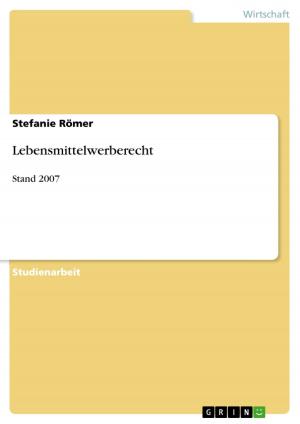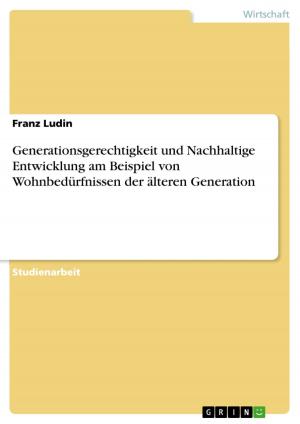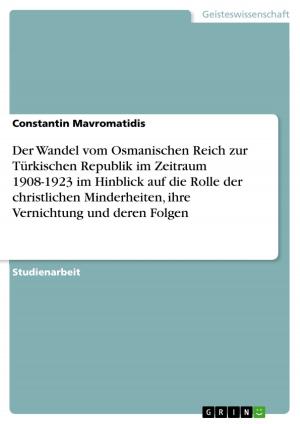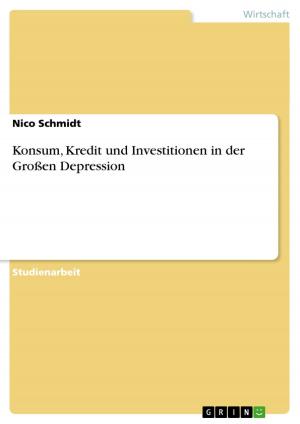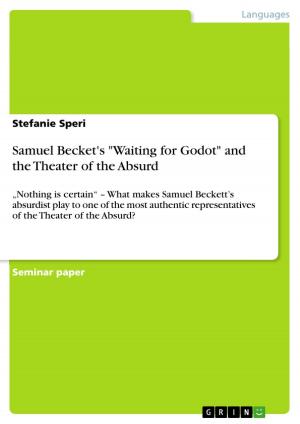Some Thoughts on the Construction of 'Our Town' (Thornton Wilder)
Nonfiction, Entertainment, Drama, Anthologies| Author: | Florian Burkhardt | ISBN: | 9783638435574 |
| Publisher: | GRIN Verlag | Publication: | November 4, 2005 |
| Imprint: | GRIN Verlag | Language: | English |
| Author: | Florian Burkhardt |
| ISBN: | 9783638435574 |
| Publisher: | GRIN Verlag |
| Publication: | November 4, 2005 |
| Imprint: | GRIN Verlag |
| Language: | English |
Essay from the year 2004 in the subject American Studies - Literature, grade: 1,5, University of Stuttgart, 4 entries in the bibliography, language: English, abstract: Can you imagine Our Town as a play in the manner of the nineteenth century? Imagine an educated, interested audience watching the story of George Gibbs and Emily Webb. Threre is a stage in front of them decorated with the façade of two houses, two fences, some flowers, a painted butternut tree. There are two stoves inside the buildings, tables with tableclothes, some kitchen utensils, a hall-stand and so on. The audience follows the story. They watch Dr. Gibbs chatting with Howie Newsome, the Webbs having breakfast. They see how George and Emily fall in love with one another in Morgan's drugstore and then they marry. Emily dies and George mourns for his wife while she is talking to other deaths. Of course this is a speculative question, but do you think people would enjoy that play? It would be rather boring, I think. 'The play has no dramatic conflict, there is no significance within the plot. There is nothing special about George and Emily. The whole thing is ordinary and unimportant', they would probably say - and they would be right. So why did Our Town win the Pulitzer-Prize? Why was it called the American drama by some critics and why did it become so popular in postwar Germany? Because it is not presented in the manner the nineteenth century. The construction of Our Town is totally different from what we call 'fourth-wall stage'. The play is presented in a (at that time) new way: It is a narrative drama. As the form of such a drama gives new possibilities to potray a story, Our Town is far more than just its plot. The main emphasis of the meaning moves away from the plot towards the form. The epic aspects of Our Town and its effects on the interpretation will be the topic of this essay.
Essay from the year 2004 in the subject American Studies - Literature, grade: 1,5, University of Stuttgart, 4 entries in the bibliography, language: English, abstract: Can you imagine Our Town as a play in the manner of the nineteenth century? Imagine an educated, interested audience watching the story of George Gibbs and Emily Webb. Threre is a stage in front of them decorated with the façade of two houses, two fences, some flowers, a painted butternut tree. There are two stoves inside the buildings, tables with tableclothes, some kitchen utensils, a hall-stand and so on. The audience follows the story. They watch Dr. Gibbs chatting with Howie Newsome, the Webbs having breakfast. They see how George and Emily fall in love with one another in Morgan's drugstore and then they marry. Emily dies and George mourns for his wife while she is talking to other deaths. Of course this is a speculative question, but do you think people would enjoy that play? It would be rather boring, I think. 'The play has no dramatic conflict, there is no significance within the plot. There is nothing special about George and Emily. The whole thing is ordinary and unimportant', they would probably say - and they would be right. So why did Our Town win the Pulitzer-Prize? Why was it called the American drama by some critics and why did it become so popular in postwar Germany? Because it is not presented in the manner the nineteenth century. The construction of Our Town is totally different from what we call 'fourth-wall stage'. The play is presented in a (at that time) new way: It is a narrative drama. As the form of such a drama gives new possibilities to potray a story, Our Town is far more than just its plot. The main emphasis of the meaning moves away from the plot towards the form. The epic aspects of Our Town and its effects on the interpretation will be the topic of this essay.


